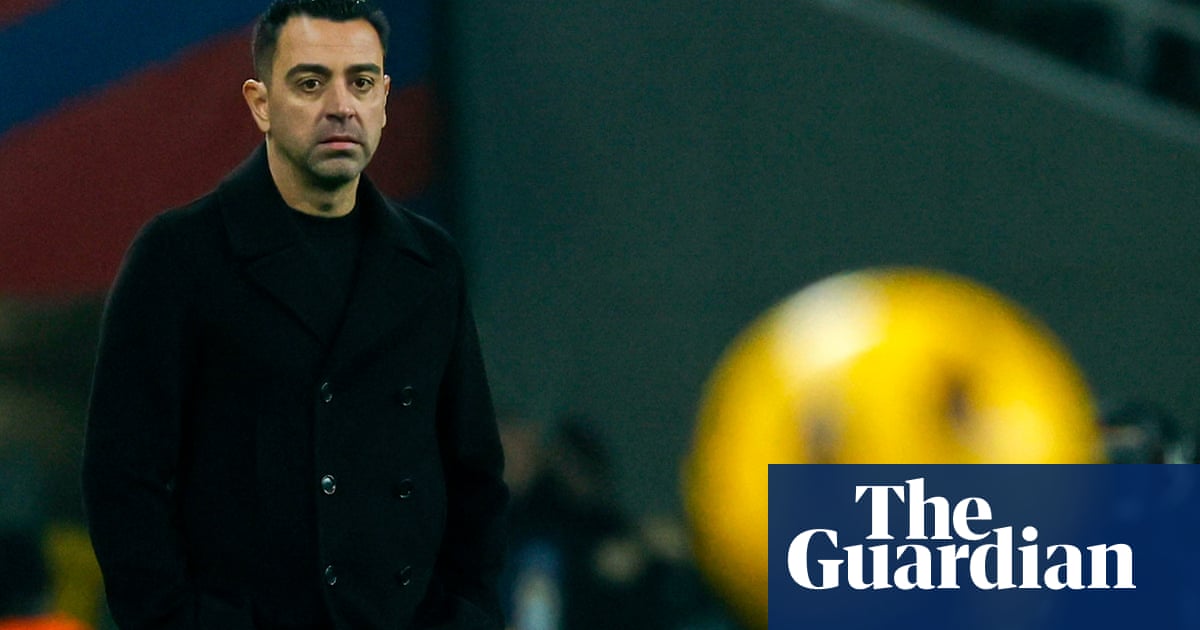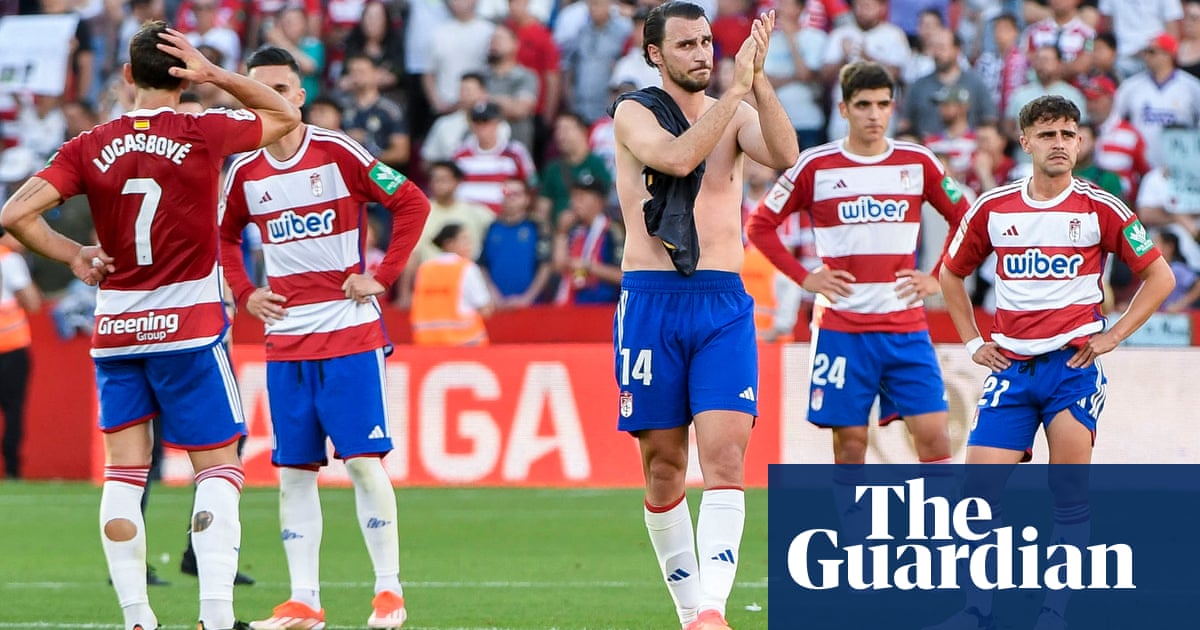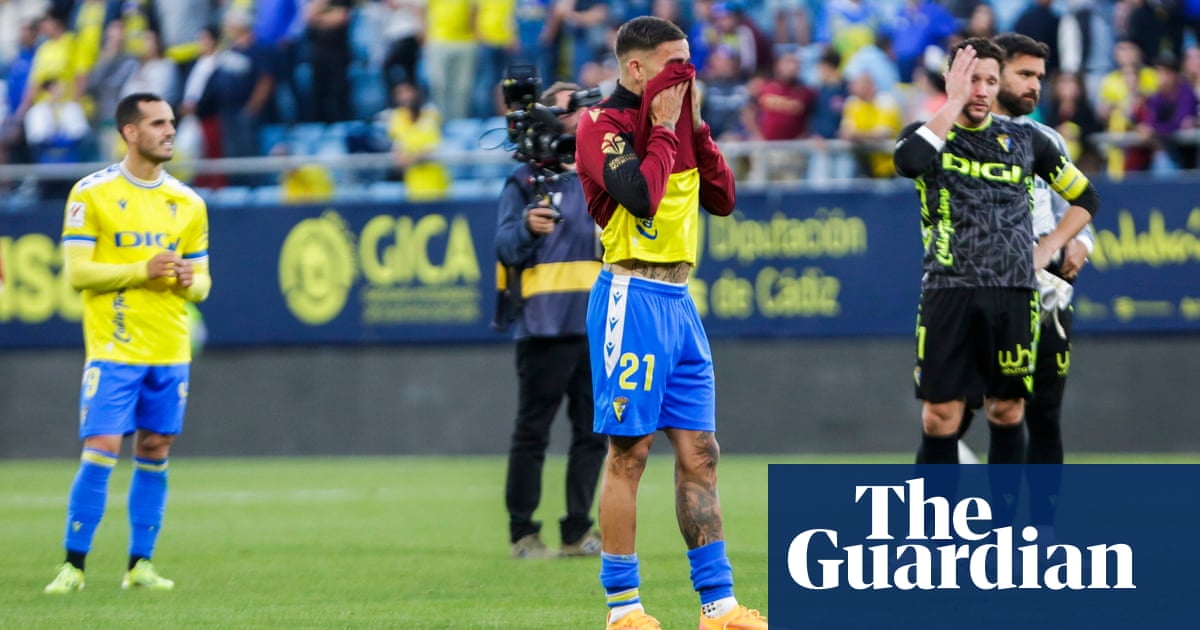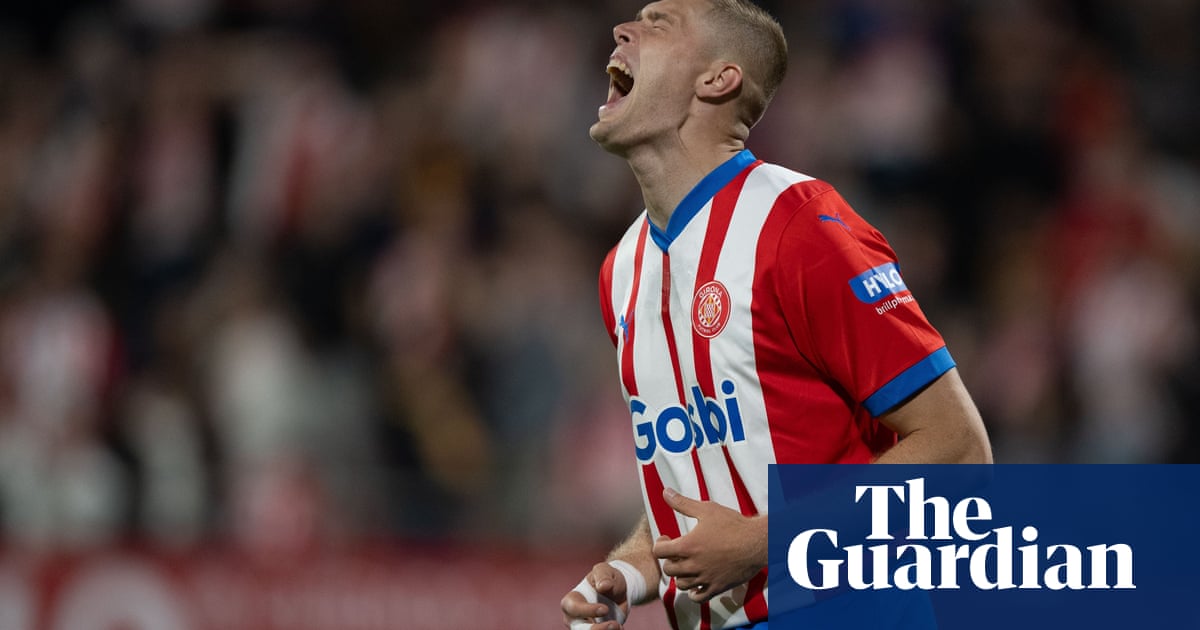
“Hitchcock could have written this,” Sergio González said when it was all over. Cádiz’s coach was shattered, soaking wet and could hardly walk, T-shirt muddy and back gone, but he’d do it all over again. Even the bit where, liberated at last, he threw himself through the rain and on to the grass at the feet of his players and their fans. Especially that bit: this was a team picture they had desperately wanted to take, the photo of a first division side. It had hurt, the man who hid his fears from those he led struggling to get up again and limping away, the season taking everything from all of them, but they’ll be back. Having dragged themselves from relegation 1,000km from home, salvation was delivered on the final day in Vitoria.
Vitoria, Pamplona and Granada. “We were playing three games in one,” Sergio said. The smallest thing is everything sometimes, football as cruel as it is brilliant. A penalty given and taken away on 86 minutes, a post on 92, a spot-kick missed by the man who least deserved to miss it, everything still on edge to the very last whistle: at the end of week 38, in which three clubs’ destinies were intertwined, the team who had it hardest, the only side whose fate wasn’t in their own hands, had survived. So had the team whose manager admitted they were “liquidated” a fortnight ago, the “walking dead”, handed an unlikely lifeline in the n92nd minute of the penultimate week. As for the team best placed to stay up – an 85% chance of survival, the stats said, and that sold them short – they had gone down. In short, Cádiz and Mallorca will be in primera next year; Granada, European quarter-finalists last season, will not.
Cádiz, Mallorca and Granada went into the final day on 36, 36 and 37 points respectively. Granada had just lost for the first game in five and the week before that, they had beaten Mallorca, scoring six. In the event of finishing level, head-to-head would see them through. Of 27 possible combinations, Granada would go down in only four. Cádiz had to play Alavés, Mallorca faced Osasuna while Granada had Espanyol. Safe but on Spain’s longest winless run, Espanyol had a caretaker manager and were missing their top scorer – the man who had scored more than four times as many goals as second highest. Granada were also the only team playing at home, Los Cármenes packed.
Which is not to say the others went alone. Three flights set off from Palma at 2.15am, 2.45am and 3.15am on Sunday, returning again 24 hours later, travel and ticket for €50. The 484 allocation sold out swiftly, and plenty more Mallorca fans made the trip. Relegated Alavés, meanwhile, had put prices high precisely to prevent the place being full of visitors – a gesture the home supporters considered so out of order, another mistake in a catalogue of mismanagement that had precipitated their fall, that they decided to use their membership to help Cádiz fans. In total, 1,000 or so headed north.
Injured winger Iván Alejo was among them. “Stiffer than Gareth Bale,” in his words, he was sitting in the stand, watching that game on the pitch and the other two on his phone, TV cameras watching him watch them. From there, he saw a nervous Mallorca limp towards the break: “There were too many emotions,” coach Javier Aguirre said. He also saw Granada lose Luis Milla after 30 minutes. And that was about it. By half-time, there were no goals, and not much football. “We started well but started to make the mistakes of a month ago,” Aitor Karanka admitted. “Today, we felt the pressure”. Cádiz too had been inhibited, “small” in their manager’s words.
Early in the second half, Ángel Rodríguez gave Mallorca the lead after a gorgeous move. He raced into the corner, ball up his top; Mallorca’s fans went mad; and Aguirre turned to look for his wife. “She must have gone to the toilet or something,” he said. Mallorca moved two points clear of relegation, which was bad enough for Cádiz and about to get worse. On 71 minutes, Anthony Lozano was standing at the side of the pitch about to come on when a ripple went around the ground. Something was happening. Behind him, Alejo was looking at the screen, nodding, about to tell them what. Granada had a penalty.
This was it, over. Mallorca led. Now, Granada would too.
Jorge Molina was standing on the spot, Diego López before him: 80 years between them. Normally Milla would take the penalty but Molina was their top scorer, the man whose extraordinary performance had seemingly secured survival when they beat Mallorca 6-2. Molina took a big breath, the weight of the world on big shoulders, and struck his penalty just past the post. Espanyol defender Sergi Gómez gave him an apologetic pat. High in the corner of El Sadar, Pamplona, there was a roar from Mallorca’s fans. In the stands at Mendizorrotza, Vitoria, Alejo clenched his fists and started shouting out a lifeline: come on, come on.
He had hardly stopped when he was off again. Iza Carcelén crossed and Lozano was there first, scoring. It was his first touch, the ball barely in play a minute since he came on, just two passing between the penalty miss in Granada and the goal in Vitoria: four points in the blink of an eye. Alejo set off down the stand, limping, nodded at the steward and clambered over the fence on to the pitch celebrating. “I made my ankle worse, but I’ve got a month to recoverer now,” he said afterwards in an interview that opened with him shouting: “Bloody hell! Shit on the bitch!”
Cádiz were out of the relegation zone and Granada were going down but a single moment would shift everything. Anyone could go down and anyone could survive. Next goal wins. Or loses.
Mallorca got it on 83 minutes. Clément Grenier, who had only been on the pitch for nine minutes and 59 all season, scored it, prompting a multi-player pileup in the corner. Mallorca were virtually safe, Cádiz still clinging to their place, all too aware that a goal at either ground and Granada would push them into the abyss. With three minutes left, Cádiz conceded a penalty for a Pacho Espino handball only for VAR to take it away again. Granada, though, were pressing for the goal that would save them. In the 92nd minute, they almost got it, Molina’s close-range header saved. Then Carlos Bacca’s deflected shot hit the outside of the post.
In Vitoria, the full-time whistle went, celebrations on hold until it went in Granada too. And then they went wild, Alejo limping over and planting a kiss on Lozano’s cheek. A missed penalty from Álvaro Negredo last week had put them in this mess; a missed penalty from Molina had got them out of it again.
There was silence in Granada, their revival under Karanka not enough. Molina, a mountain of a man, looked broken. Cameras closed on his little daughter crying. It was a hard watch: him of all people. He stood before supporters, tears in his eyes, palms out. Afterwards, fans chanted his name through the fence, consoling him. Forty years old, it is five years since he returned to primera, a place he had graced like few others. Back then, he had dragged Getafe up as top scorer, just as he had done with Betis two years earlier. Now, coming to the fence where they waited, he promised he will stay and try to do the same with Granada.
“No one expected this: it’s a hammer blow,” said Víctor Díaz, the Granada captain. “One loss in a month and we’ve gone down, but that’s football, that’s life,” Karanka said. In Vitoria and Pamplona bottles were cracked open. “Please don’t go in our dressing room; it’s so dirty in there,” grinned Mallorca striker Vedat Muriqi.
Aguirre was gripping a towel, sweating. Sometimes, he wonders why he does this to himself; other times, like this, he knows exactly why. “What we went through after the 6-2 I wouldn’t wish on anyone,” he said. “We were like ghosts. Terrible, terrible days. Things looked ugly. We were liquidated, fucked, dead. But we competed against Sevilla, drew 0-0, and then Abdón’s goal [in the 92nd minute against Rayo] shook it all off.”
At Sevilla, a 96th-minute save from Manolo Reina, returning after three months out dropped, had given Mallorca a fighting chance; now they had taken it. He is leaving after six years at the club he helped bring up from Segunda B. This is the first season they haven’t gone up or down. “Now tonight at least I can sleep easy,” he said, but sleeping wasn’t really on their minds, pizzas and beers loaded on a trestle table by the team bus, champagne open. It had been some day, and it had only just started for Cádiz and Mallorca, flights home, then nights out, the tension released at last, nine months and 90 minutes later.
“It’s like the captain on the Titanic: you have to give them confidence, normality,” Sergio said. “But then there’s the tension, the emotion and it affects you. It’s like a film script. . It was all very macabre. The script was bombproof, pure tachycardia. How am I? Exhausted.” But it was done and Cádiz’s captain José Mari was beaming. “We’re the happiest footballers in the world,” he said.












